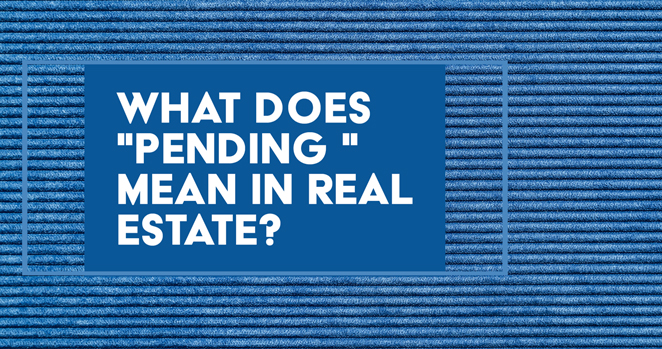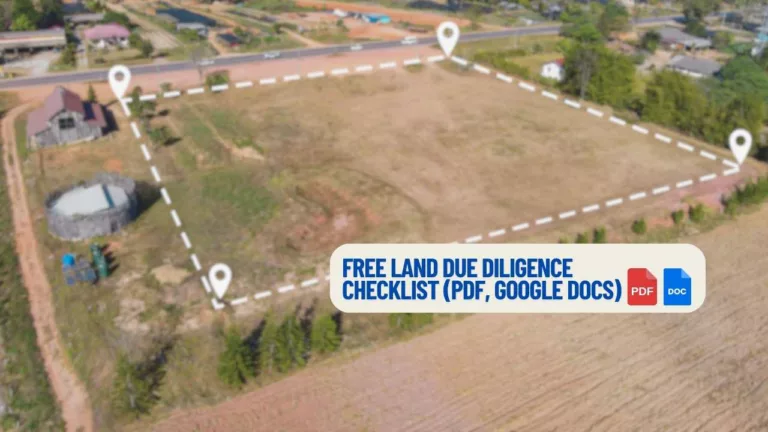
Pending – Pending simply means that an offer has been accepted on a property and the sale is in progress. It’s important to remember that a pending sale is not final until all of the paperwork has been processed and the sale goes through.
There are many real estate industry terms that can be confusing for newcomers to the market. In this blog post, we will define one of the most commonly used terms: “pending.”
The Different Types of Pending on a House
Pending – Taking Backups
A pending status labeled “Taking Backups” signals that the seller has accepted an initial buyer’s offer, but the property remains open to backup offers. This situation is helpful in cases where the sale pending might face challenges, such as financing issues, a low appraisal, or complications related to an inspection contingency. For prospective buyers, this is an opportunity to secure a spot as the next in line if the original deal collapses. While the dream home might feel out of reach, staying as a serious buyer with strong mortgage loan approval can make a backup offer more appealing to sellers.
Pending – Short Sale
For homes marked with a pending status due to a short sale, the seller is awaiting approval from their mortgage lender to finalize the sales contract. A short sale occurs when the purchase price is less than the debt owed on the property, requiring the lender’s consent before proceeding. This process takes time, and the home sale contingency or appraisal contingency tied to the agreement may further delay the sale. Such situations can attract motivated buyers looking for value, though they must be prepared for an extended purchase process. While the seller has accepted an offer, buyers should monitor progress closely in case the pending sale falls through.
Pending – More Than 4 Months
A pending house marked “More Than 4 Months” reflects a lengthy delay in reaching the final sale. Reasons for this could include unresolved contingent sale conditions, extended negotiations over appraised value, or issues involving buyer’s financing that take time to resolve. Properties with this label give new buyers a chance to step in if the original deal collapses before closing. Real estate listings in this category often suggest that the buyer or seller accepts the delays as part of navigating complex legal consequences or managing unexpected hurdles in the home buying process. Patience and persistence can pay off for those who keep tabs on these long-pending properties.
Pending vs Contingent
The terms “pending” and “contingent” in real estate refer to different stages in the home buying process. A contingent home means the seller has accepted a contingent offer, but the sale depends on meeting certain contingencies such as a home inspection or earnest money confirmation. These homes often remain an active listing, allowing the seller to accept backup offers if the initial deal falls through. On the other hand, a pending offer indicates the contingencies have been resolved, and the sale is moving toward the closing table. While a kick out clause can influence how quickly a contingent property progresses, homes with a pending status rarely accept new offers. Both statuses are critical for personal finance planning, especially in competitive markets with frequent bidding wars, where buyers and sellers negotiate the sales price to reach the final stages of the transaction. Understanding these differences helps many buyers make informed decisions when navigating their dream home’s real estate dynamics.

Understanding the terminology of real estate is crucial for anyone looking to buy or sell a property
Understanding real estate terminology is an essential step for anyone entering the market to buy or sell a property. Grasping concepts like pending home sale, buyer’s offer, and appraisal contingency empowers you to make informed decisions during crucial stages of the process.
For instance, knowing the difference between a sale pending and a contingent sale can help you identify opportunities or avoid unnecessary delays. Familiarity with terms such as inspection contingency, pending status, and secure financing ensures smoother transactions and fewer surprises.
Even terms such as buyer’s remorse or sale falls could signal potential risks to watch out for during a deal. Staying informed about elements like mortgage loans, home inspection contingency, and prospective buyers, helps you position yourself to better handle negotiations, understand your responsibilities, and achieve a final sale with confidence.
Real estate is a dynamic industry, and having a deep understanding of its vocabulary keeps you steps ahead in any transaction.

Educate yourself on what to expect when buying a property
With the help of a real estate agent, you will be able to guide you through the process and answer any questions you may have about pending sales and other industry terms.
Stay tuned for more posts on common real estate industry terminology. In the meantime, if you want to learn more or have any specific questions, don’t hesitate to reach out to a local real estate agent. They will be more than happy to help you out!
Now that we have answered the question, “what does pending mean in real estate?,” stay tuned for more posts on common real estate industry terminology. In the meantime, if you want to learn more or have any specific questions, don’t hesitate to contact us.
Keep up with popular trends and the latest jargon in the industry
Subscribe to our blog so you stay up to date with great real estate information. You can also follow us on Twitter and Facebook for more helpful tips!
And don’t forget, if you are looking to buy a property or sell a property , always consult with a local real estate agent. They will be able to help you navigate the market and answer any questions you may have about pending sales and other industry.

Check Back for Updates
Real estate is constantly evolving, with new opportunities and updates arising every day. If you’re curious about a title contingency, figuring out what an offer on a pending property means, or seeking advice from a trusted listing agent, then staying informed is key to making the best decisions in your home search. Many homes transition from a listing active status to pending, leaving buyers wondering what terms like mean when a house enters this phase. Since most sellers aim for a smooth transaction while preparing for the original buyer or potential contingencies, keeping an eye on real estate changes is crucial. Check back regularly for the latest updates to keep ahead in this competitive market and ensure you’re ready to seize the right opportunity.




